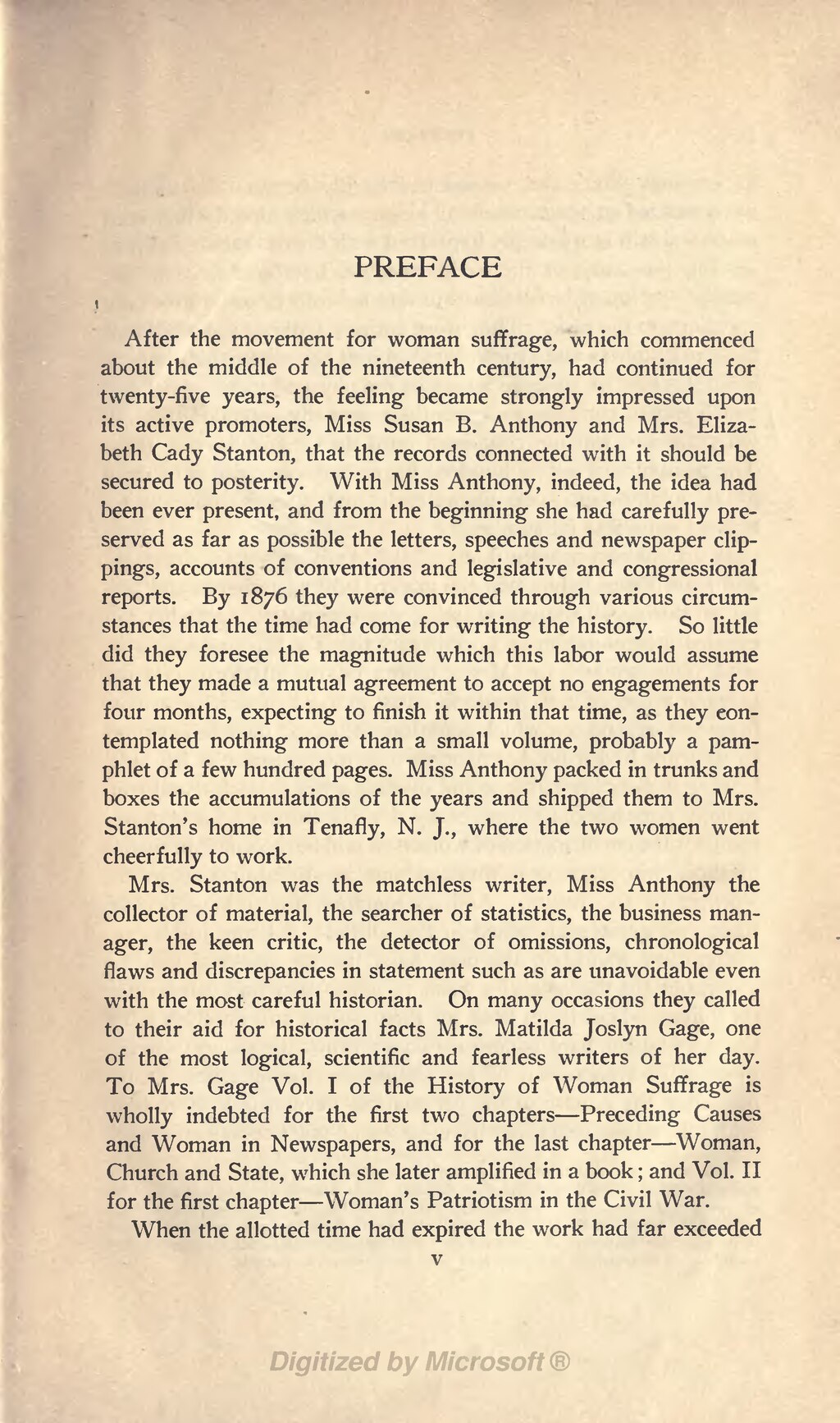PREFACE
After the movement for woman suffrage, which commenced about the middle of the nineteenth century, had continued for twenty-five years, the feeling became strongly impressed upon its active promoters, Miss Susan B. Anthony and Mrs. Elizabeth Cady Stanton, that the records connected with it should be secured to posterity. With Miss Anthony, indeed, the idea had been ever present, and from the beginning she had carefully preserved as far as possible the letters, speeches and newspaper clippings, accounts of conventions and legislative and congressional reports. By 1876 they were convinced through various circumstances that the time had come for writing the history. So little did they foresee the magnitude which this labor would assume that they made a mutual agreement to accept no engagements for four months, expecting to finish it within that time, as they contemplated nothing more than a small volume, probably a pamphlet of a few hundred pages. Miss Anthony packed in trunks and boxes the accumulations of the years and shipped them to Mrs. Stanton's home in Tenafly, N. J., where the two women went cheerfully to work.
Mrs. Stanton was the matchless writer, Miss Anthony the collector of material, the searcher of statistics, the business manager, the keen critic, the detector of omissions, chronological flaws and discrepancies in statement such as are unavoidable even with the most careful historian. On many occasions they called to their aid for historical facts Mrs. Matilda Joslyn Gage, one of the most logical, scientific and fearless writers of her day. To Mrs. Gage Vol. I of the History of Woman Suffrage is wholly indebted for the first two chapters — Preceding Causes and Woman in Newspapers, and for the last chapter — Woman, Church and State, which she later amplified in a book; and Vol. II for the first chapter — Woman's Patriotism in the Civil War.
When the allotted time had expired the work had far exceeded
